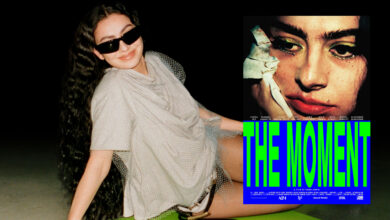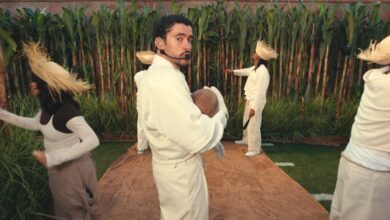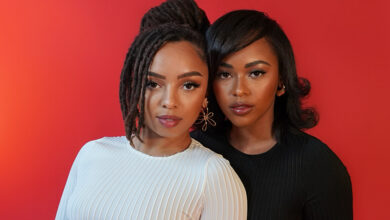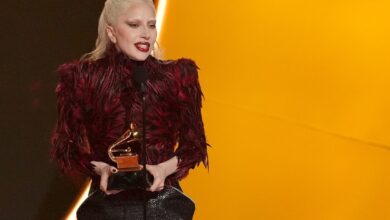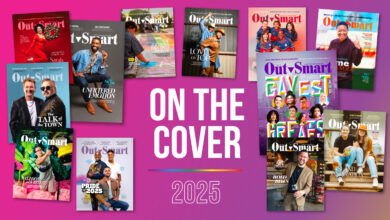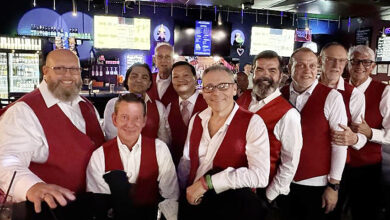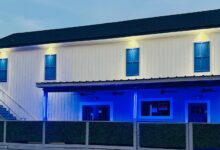Meet Four Queer DJs Shaping Houston’s Nightlife Sound
These artists are using music to build joy, safety, and community.
In Houston, beneath the city’s shimmering skyline, lies a music scene as rich and diverse as its people. But for the DJs who energize this city, it’s more than just spinning tracks—these individuals are creating safe spaces. Through sound, they’re cultivating joy, building community, and fostering resilience in a challenging world. Houston’s queer nightlife has long served as a symbol of resistance, and today’s DJs carry that forward with bold experimentation and fierce authenticity. What makes the scene here truly special is its blend of Southern grit, multicultural rhythm, and unapologetic queerness. These are just some of the queer DJs in Houston who are amplifying marginalized voices and redefining what nightlife can be.
The Crowd Reader
DJ Ari
She/Her
@Ari_TheDJ
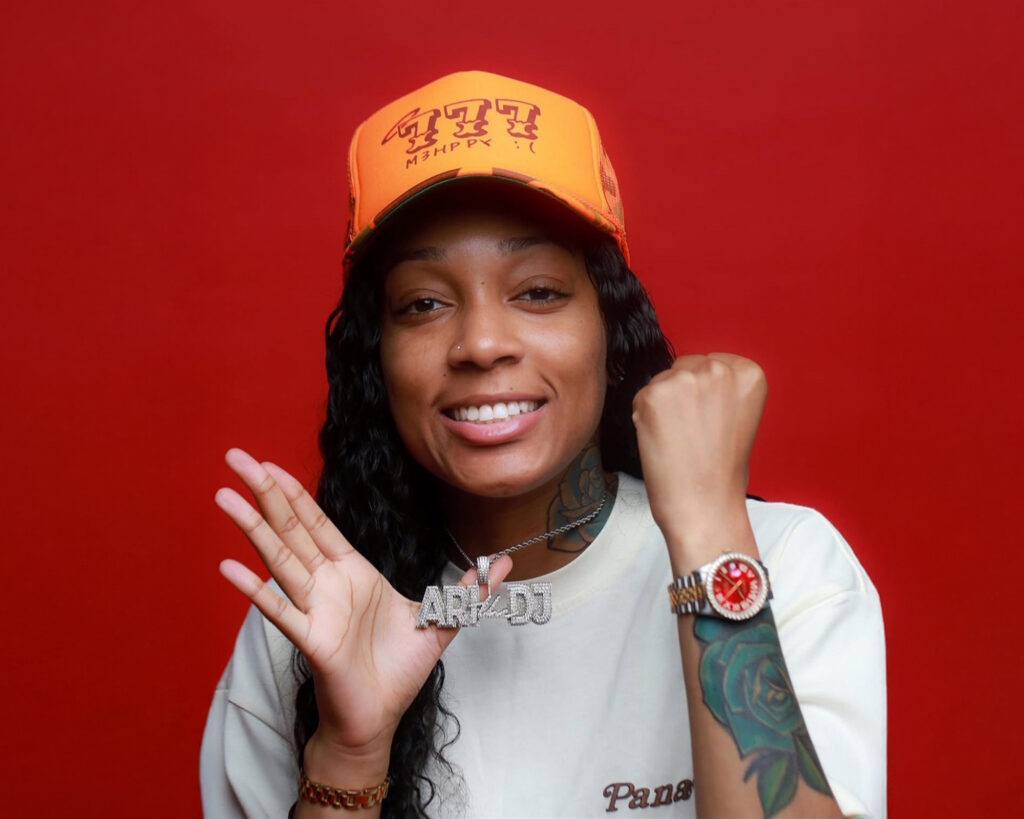
In a sea of playlists, pre-planned drops, and mapped-out transitions, DJ Ari does things differently. She doesn’t rehearse her sets. She doesn’t even necessarily know what song she’s going to start with until she feels the energy in the room. Her style? Call it “The Crowd Reader.” “I rarely ever plan my sets in advance,” she says. “I like to get to the club or event and see what type of energy the crowd and I can create together.”
That ability to read and respond has earned her a name in Houston’s vibrant music scene over the past decade, particularly in queer nightlife spaces where she doesn’t just spin tracks, she makes space. But DJing wasn’t always the plan. In fact, it almost didn’t happen at all.
DJ Ari’s entry into the world of music was less about ambition and more about surviving. A broke college student looking for a hustle, she tapped into something that had always been second nature: curating vibes for her friends. As the “iPod DJ” for many functions, Ari took a leap, purchasing DJ equipment and dreaming of turning weekend parties into a paycheck.
But starting out wasn’t easy. “I realized it wasn’t easy to get booked as a DJ who’s just started,” she said. “So, I threw my own free parties just so people would come and listen to me DJ.”
What began as a workaround became a calling, and a decade later, Ari is not only headlining major venues, she’s also building platforms for others to do the same.
While some DJs cite global icons as their guiding stars, Ari finds inspiration much closer to home. “My DJ friends around me have influenced me the most,” she says. “From my college days up until now, I’ve been blessed to have such great DJ homies who are amazing at what they do. I learn so much from them, and they inspire me daily.”
Ari’s presence in the Houston scene goes beyond the beats. As a masculine-presenting queer woman, she’s used her platform to challenge assumptions, shift the spotlight, and crack open spaces that haven’t always been welcoming. “I don’t see many masculine women like myself in the big clubs or huge festivals I’ve been a part of,” she notes. “It’s already hard for women to occupy these spaces, but being masc is even more difficult.”
Rather than conform or retreat, Ari leaned in. She began to notice something powerful: the more visible she became, the more queer people began showing up—finding their own space through her presence. That visibility has taken on even greater impact through her company, Lesbian In Houston, a platform and party series dedicated to creating opportunities and safe spaces for queer women. From DJs and MCs to event staffing and collaborations, Ari centers her community at every level. “I’m trying to show up as someone I wish I was when I first stepped into DJing and into Houston,” she says.
At the end of the day, Ari’s goals are as simple as they are profound. “I just want people to feel something from my sets—whether it made you feel sexy and boosted your confidence, whether it made you let out emotions you’ve been holding in, or whether it just made you want to nod your head to some good tunes.”
Spinning Joy on the Dance Floor
DJ Chad Guidry
He/Him/His
@dj.chad.guidry
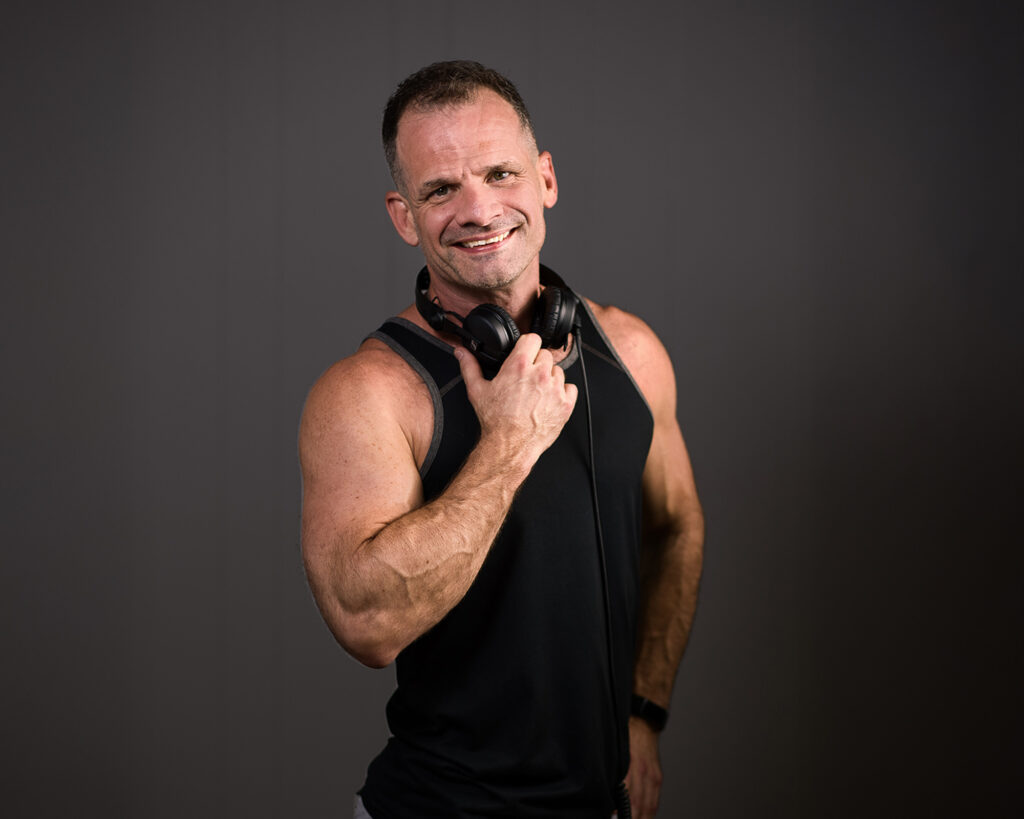
For Chad Guidry, DJing isn’t just about music—it’s about creating joy.
“The best description of my sound is ‘upbeat to high-energy house/dance music composed of melodies, vocals, instrumentals, and beats to encourage the audience to dance, feel good, sing, or smile,’” says Guidry.
But DJing didn’t happen overnight. Guidry’s relationship with music began back in grade school as a percussionist, a role that eventually earned him a college scholarship, even though he majored in mathematics. After graduation, he moved to Houston to dive into his first love: competitive dancing. It was through that world—and a boyfriend in 1999—that he was introduced to dance music.
It didn’t take long for Guidry to begin burning mix CDs for friends, which led to purchasing gear and eventually landing his first live DJ gig in 2002. At the time, his style was rooted in the circuit music found in gay clubs. Today, he spins everything from EDM, tech house, and electro to chill, trance, tropical, and Latin house.
This musical versatility is one of Guidry’s calling cards. Whether he’s playing a high-octane Saturday night set or a mellow Sunday brunch, he tailors his selections while still maintaining his signature uplifting style.
“Knowing how to choreograph a dance routine with peaks and valleys is key to keeping an audience interested,” he says. “The same is true with building a DJ set.”
Although Guidry identifies as a queer man, he doesn’t see his queerness as the defining force in his musical identity. “Music is not gay or straight,” he says. “There is a ‘togetherness’ that music brings to crowds that have gathered for the purpose of experiencing the music.”
Still, he recognizes the significance of queer representation in nightlife spaces and appreciates how genre-defying performances can help close cultural gaps.
Houston’s nightlife scene, according to Guidry, is evolving. While many bars have begun to blend into a homogenous experience—with mixed crowds and familiar playlists—he sees hope in venues like Montrose Country Club and the newly reimagined Rich’s, both of which are embracing diverse musical lineups and more lively programming. Special events, too, offer DJs like Guidry the freedom to take risks and showcase lesser-known tracks without alienating audiences.
When asked what he hopes people take away from his sets, Guidry says his goal is simple: he wants to make people smile.
“There’s no greater feeling than looking out at a dance floor and seeing smiling faces or people singing,” he says. “I want my music and my stage presence to reflect my positive outlook on life.”
Despite juggling a full-time IT job, Chad continues to spin at special events across the city. Some of his recurring gigs include Pride Brunch (supporting the Montrose Center), the Halloween Fantasy Ball, and Disco Turkey, his very own event held every November.
Circuit Royalty
DJ AJ Hernandez
He/Him/His
@djaracelymanterola
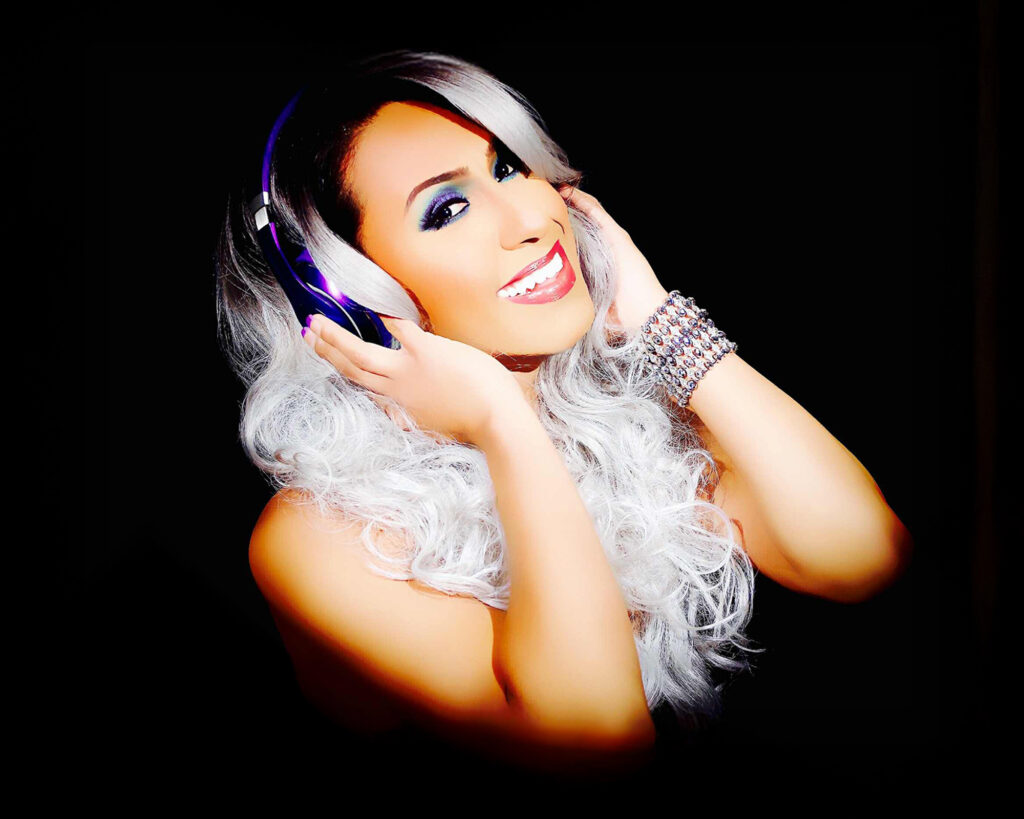
In Houston’s DJ community, few figures shine quite like AJ Hernandez. Also known in the community as Aracely Manterola, a drag DJ of 26 years, Hernandez is far more than a party starter—he’s the creator of safe spaces across the city.
“The roles of queer DJs are huge,” he says. “We bring the sense of a safe space. Musically, we are unapologetic and not afraid to play what we want. That’s the key to a great night.”
Hernandez’s journey into DJing wasn’t planned. Years ago at Club Inergy, he found himself transfixed by remix videos playing on the screen. A friend nudged him to try playing a few songs. Minutes later, the dance floor was packed from Hernandez’s music selection.
“I turned around, and the floor was full,” he says. “I freaked out! What I didn’t know was that the owners were watching from the back. That night, I got a spotlight taste.”
Hernandez was offered a weekly residency, taught himself how to DJ, and never looked back. Since that fateful night, Hernandez has DJed from coast to coast: Pride festivals, online radio stations, college events, and private parties.
Ask Hernandez to describe his sound and he’ll rattle off a variety of music genres. “I’m a circuit queen at heart,” he says. “My sound is circuit/house tribal, but with a twist. Being a DJ is not just playing music. It’s about telling stories from the songs you choose—songs that carry emotions and memories for everyone.”
And for many fans, his DJ sets are unforgettable. “I’ve had people come up to the DJ booth after the night is over, or when I’m out in the Montrose bars, telling me that they never had a night like that ever,” he says. “That’s when I know my job was done and they will forever remember you.”
Hernandez brings that same heart to every gig—whether performing in full drag behind the decks or spinning at a glamorous gala. “If I play 50 songs, that’s 50 performances,” he says. “And I don’t stop.”
His drag-DJ identity has broken barriers and created unforgettable nights across Texas. “When I’m in the zone and a crowd is screaming my name, it’s an overwhelming joy,” he says.
Reshaping Houston’s Queer Nightlife
DJ MLE
She/Her
@lajungla.htx
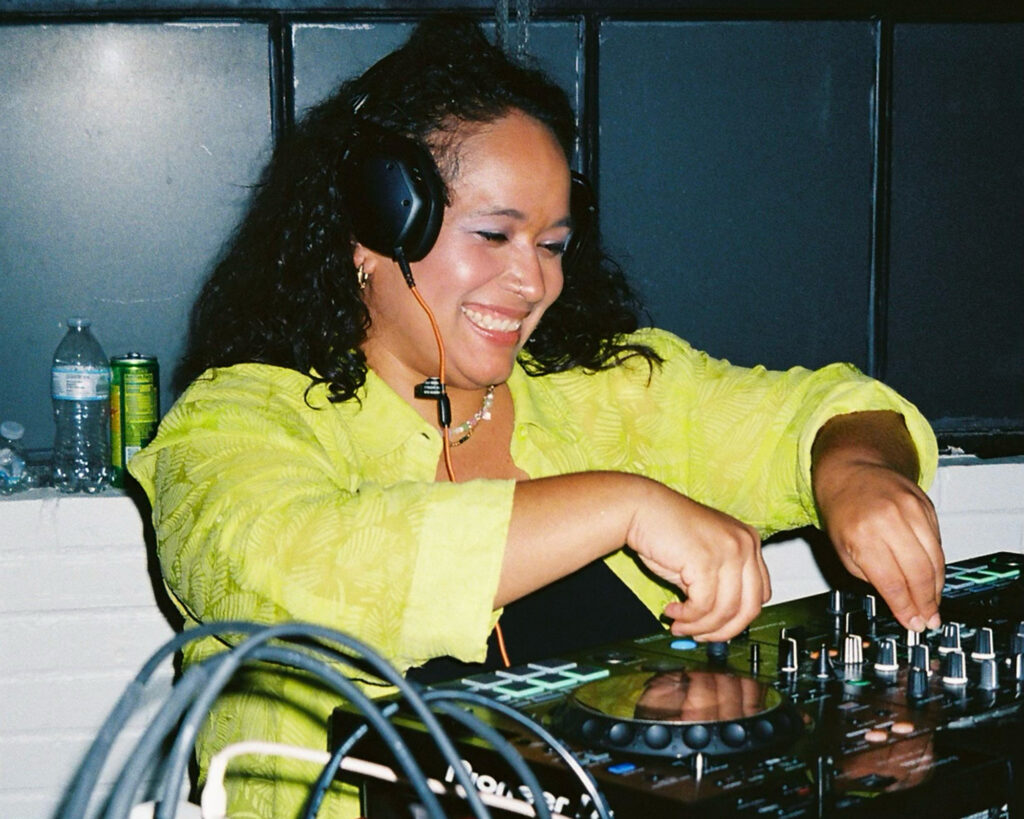
For Emily Areta—better known as DJ MLE—the dance floor is more than a party. It’s a place for transformation.
Blending Afro-Caribbean rhythms with her Afro-Panamanian roots, Areta doesn’t just play music. She creates musical experiences that recharge the spirit of those in the crowd. “Ultimately, my goal is to get people out of their minds and fully into their bodies, to the point where they’re releasing the stresses they carry and connecting with others through movement,” she says.
Areta’s path to the booth began long before she ever touched a turntable. Raised in Houston by a single mother who led the Panamanian folkloric dance group Ritmos de Panamá, Areta was immersed in culture from day one—singing in church choirs, performing in musical theater, and even beat-boxing for her college a cappella group. But it wasn’t until a transformative year living in rural Panamá on a Fulbright grant that she began to see music through a different lens. “There, I was blown away by how Caribbean and diasporic the music scene was,” she says. “Salsa, soca, reggae, Afrobeats, reggaeton—it all blended seamlessly. It felt so different from what I’d known in Houston.”
When she returned home, she was determined to inject Houston’s Latin music spaces with more Afro-diasporic presence. In 2017, amid the torrential rains of Hurricane Harvey, a friend’s unused DJ controller and a handful of YouTube tutorials became the seeds of a now-prospering career. By 2019, she’d launched Tumbao, her first weekly residency at The Flat, carving out space for Afro-Latin music and artists in a scene that lacked representation. She soon decided to build on that achievement.
With a grant from the Houston Arts Alliance, Areta co-founded Juicebox, which is a collective uplifting Black and brown queer DJs and creatives. During the pandemic, the group organized a 14-hour virtual music festival to raise funds for artists and foster connection during a time of isolation. That same energy continued offline with residencies, collaborations, and safe spaces like Play Date, which became a hub for queer DJs to gain experience on club-standard equipment.
In 2023, a powerful partnership emerged when Areta met Caribbean-American DJ Yanna. Together, they formed La Jungla, a femme and queer-forward event series that fuses Afro-diasporic sounds with Houston nightlife. Their third event drew over 200 attendees—and was just a preview of things to come.
In 2024, with support from another Houston Arts Alliance grant, they launched La Jungla Fest, an expansive cultural celebration featuring artists from the Dominican Republic, Chicago, and Houston. Backed by Bacardi and curated with local femme vendors and visionary artists, the festival showcased Areta’s mission: to center joy and queerness.
Areta’s approach to DJing is deeply political. Every beat she plays is an act of cultural reclamation, one rooted in her own family’s legacy. Her grandfather, Emilio Sempris, was a renowned big band director in 1950s Panamá, and his passion for music is fully evident in her sets.
“Anyone who sees music as a tool for community building and political resistance—especially for BIPOC and LGBTQ+ folks—influences me,” she says.
And that shows in the events she’s built through her new production platform Diablo Rojo Sound. From the spicy Calentura Day Party to collaborations with brands like Ilegal Mezcal and Ice House Radio, she’s expanding the blueprint for what inclusive nightlife can look like.
Still, challenges remain: venue access, business development support, and funding are constant hurdles for queer creatives, particularly those of color. But Areta remains hopeful and committed.
“I just want people to be safe and seen in the spaces I create,” she says. “If it doesn’t exist, create it. That’s always been my motto.”


